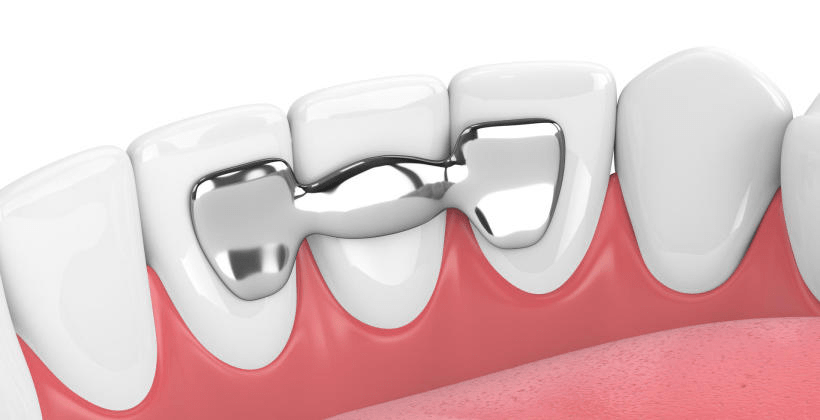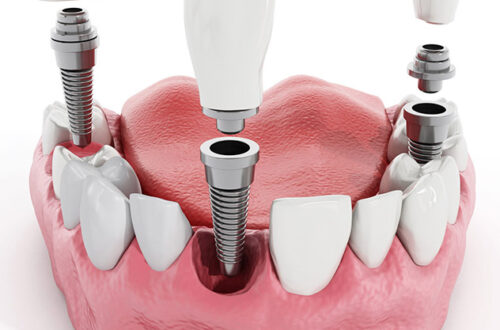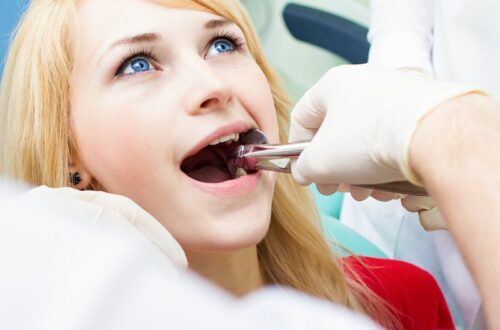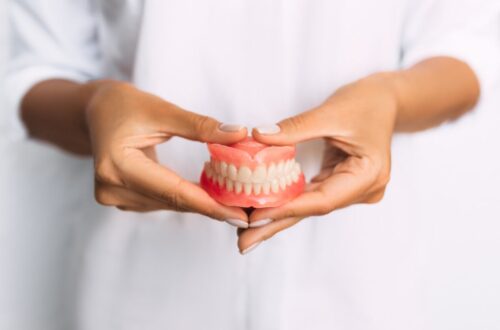
Bridge vs. Dental Prosthesis: Making the Right Choice for Your Dental Health
Are you faced with the daunting decision of choosing between a dental bridge and a dental prosthesis? Your dental health is of utmost importance, and making the right choice can have a significant impact on your overall well-being. In this article, we will explore the pros and cons of both options, helping you make an informed decision that suits your specific needs. Whether you are missing a single tooth or multiple teeth, understanding the differences between a bridge and a dental prosthesis is crucial. We will delve into aspects such as durability, aesthetics, cost, and maintenance, providing you with valuable insights that will empower you to make the best choice for your oral health. So, let’s dive in and discover which option is the perfect fit for you and your dental needs.
Do you dream of a new, beautiful smile? A perfect solution will be the reconstruction of teeth with the use of the Poznan prosthesis service. Qualified specialists from the Stankowscy-Białach dental clinic will do it for you!
Understanding dental bridges and dental prostheses
When it comes to replacing missing teeth, dental bridges and dental prostheses are two common options. A dental bridge is a fixed dental restoration that uses adjacent teeth as anchors to support a false tooth or multiple teeth in the gap. It consists of dental crowns on the abutment teeth with a pontic (false tooth) in between. On the other hand, a dental prosthesis, also known as a removable partial denture, is a removable appliance that replaces one or more missing teeth. It consists of a metal or acrylic framework with artificial teeth attached to it, which sits on the gum and is secured with clasps or attachments to the remaining natural teeth.
Pros and cons of dental bridges
Dental bridges offer several advantages that make them a popular choice for tooth replacement. Firstly, they provide a fixed solution, meaning they are permanently cemented in place and do not require removal for cleaning or maintenance. This stability allows for improved functionality, as you can comfortably eat and speak without worrying about the bridge shifting or moving. Additionally, bridges offer excellent aesthetics, as they are custom-made to match the color and shape of your existing teeth, resulting in a natural-looking smile.
However, there are some downsides to consider when opting for a dental bridge. One major drawback is that the adjacent healthy teeth need to be prepared for the placement of dental crowns, even if they are structurally sound. This irreversible alteration can weaken these teeth and make them more susceptible to future dental issues. Furthermore, bridges do not stimulate the underlying jawbone, which can lead to bone loss over time. Lastly, the cost of dental bridges tends to be higher compared to dental prostheses, making them a less affordable option for some individuals.
Pros and cons of dental prostheses
Dental prostheses, or removable partial dentures, offer their own set of advantages and disadvantages. One of the significant benefits is that they are a more affordable option compared to dental bridges or other tooth replacement alternatives. This affordability makes dental prostheses accessible to a wider range of individuals who may have budget constraints. Additionally, unlike dental bridges, prostheses do not require the preparation of adjacent teeth, which preserves their natural structure.
On the downside, dental prostheses can be less stable than bridges, especially if you have multiple missing teeth. They rely on clasps or attachments to secure them to the remaining natural teeth, which may cause some discomfort or potential movement while eating or speaking. The removable nature of dental prostheses also means that they need to be taken out for regular cleaning, which can be inconvenient for some individuals. Furthermore, the metal or acrylic framework of a dental prosthesis may be visible when you smile or speak, which can affect the overall aesthetics.
Factors to consider when choosing between a bridge and a dental prosthesis
When deciding between a dental bridge and a dental prosthesis, it is essential to consider various factors that affect your specific situation. One crucial consideration is the number of missing teeth you have. If you are missing only a single tooth, a dental bridge may be a suitable option as it provides a fixed and aesthetically pleasing solution. However, if you have multiple missing teeth, a dental prosthesis may be a more practical choice, especially if budget constraints are a concern.
Another factor to think about is the health and stability of your adjacent teeth. If they are already compromised or would require significant preparation for a bridge, a dental prosthesis may be a better alternative. Preserving the natural structure and integrity of your teeth is important for long-term oral health. Additionally, consider your personal preferences, lifestyle, and ability to maintain and care for the chosen tooth replacement option.
The process of getting a dental bridge
Getting a dental bridge typically involves multiple visits to your dentist. During the initial consultation, your dentist will evaluate your oral health, take impressions of your teeth, and discuss the treatment plan. In the subsequent visits, the abutment teeth will be prepared by removing a portion of their enamel to make room for the dental crowns. Temporary crowns will be placed, and impressions will be taken again to create the custom bridge. Once the final bridge is ready, it will be permanently cemented in place, restoring your smile and functionality.
The process of getting a dental prosthesis
The process of getting a dental prosthesis starts with a consultation to assess your dental health and discuss your needs. Your dentist will take impressions of your teeth and gums, which will be used to create a custom framework for the prosthesis. Once the framework is ready, artificial teeth will be attached to it, and it will be fitted in your mouth. Your dentist will make necessary adjustments to ensure a comfortable fit and proper bite alignment. You will be provided with instructions on how to care for and clean the prosthesis, and follow-up appointments may be scheduled to monitor its fit and make any required adjustments.
Cost comparison of dental bridges and dental prostheses
The cost of dental bridges and dental prostheses can vary depending on several factors, including the materials used, the complexity of the case, and the location of the dental practice. Generally, dental bridges tend to be more expensive due to the additional procedures involved, such as preparing the abutment teeth and creating custom crowns. On the other hand, dental prostheses are generally more affordable, making them a cost-effective option for individuals on a tight budget. However, it is essential to consider the long-term costs associated with maintenance and potential repairs for both options.
Maintenance and care for dental bridges and dental prostheses
Proper maintenance and care are crucial for the longevity and functionality of dental bridges and dental prostheses. For dental bridges, regular brushing and flossing are essential to keep the surrounding teeth and gums healthy. It is also recommended to use a special floss threader or interdental brushes to clean underneath the bridge and remove any food debris. Regular dental check-ups and professional cleanings are necessary to ensure the bridge remains in good condition and to address any potential issues promptly.
Dental prostheses require diligent cleaning as well. They should be removed daily and cleaned using a soft toothbrush and non-abrasive denture cleaner. It is important to avoid using regular toothpaste, as it can be too abrasive and damage the prosthetic teeth. Additionally, soaking the prosthesis in a denture cleaning solution overnight helps to remove any bacteria or stains. Regular dental visits are also necessary to evaluate the fit of the prosthesis and make any necessary adjustments.
Long-term effects and considerations
When considering a dental bridge or dental prosthesis, it is important to think about the long-term effects on your oral health. Dental bridges, while providing a fixed solution, may require replacement after a certain number of years due to wear and tear. Additionally, the preparation of adjacent teeth for a bridge can weaken them and potentially lead to future dental problems. On the other hand, dental prostheses may need to be adjusted or replaced over time as the shape of your mouth changes or as the prosthetic teeth wear down.
Moreover, both options may have an impact on your diet and eating habits. Dental bridges offer stability and allow for a wider range of food choices, similar to natural teeth. However, certain hard or sticky foods may need to be avoided to prevent damage to the bridge. Dental prostheses, being removable, may have some dietary restrictions, as they may not provide the same stability when biting into certain foods. It is important to discuss these considerations with your dentist to determine which option best suits your lifestyle and dietary preferences.
Conclusion
Choosing between a dental bridge and a dental prosthesis can be a challenging decision, but understanding the pros and cons of each option can help you make an informed choice. Dental bridges offer a fixed and aesthetically pleasing solution, while dental prostheses provide a more affordable alternative. Factors such as the number and health of missing teeth, cost, maintenance, and long-term effects should be carefully considered. Consulting with your dentist and discussing your specific needs and preferences will ultimately guide you towards selecting the best option for your oral health. Remember, investing in a suitable tooth replacement solution is an investment in your overall well-being and confidence.




